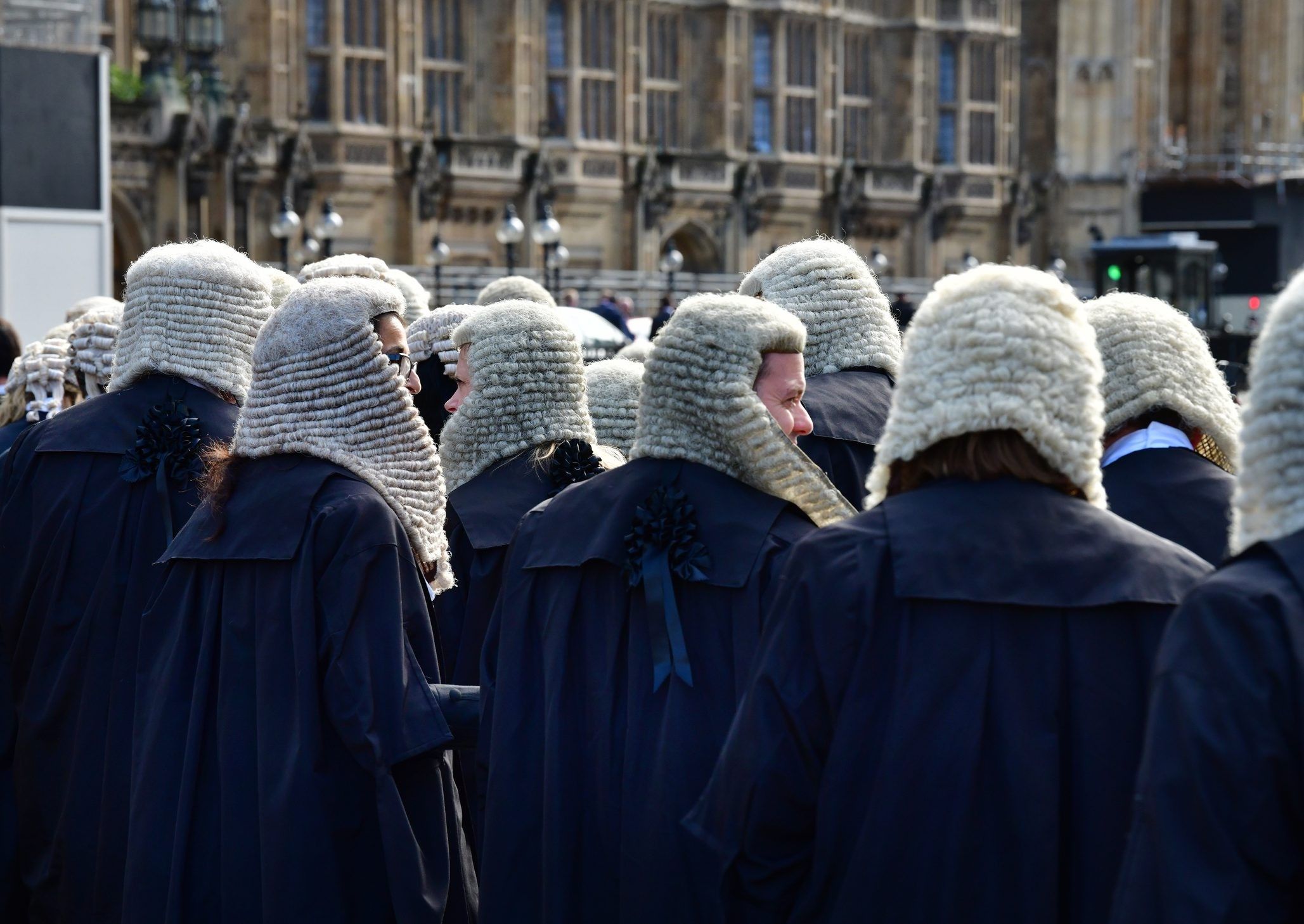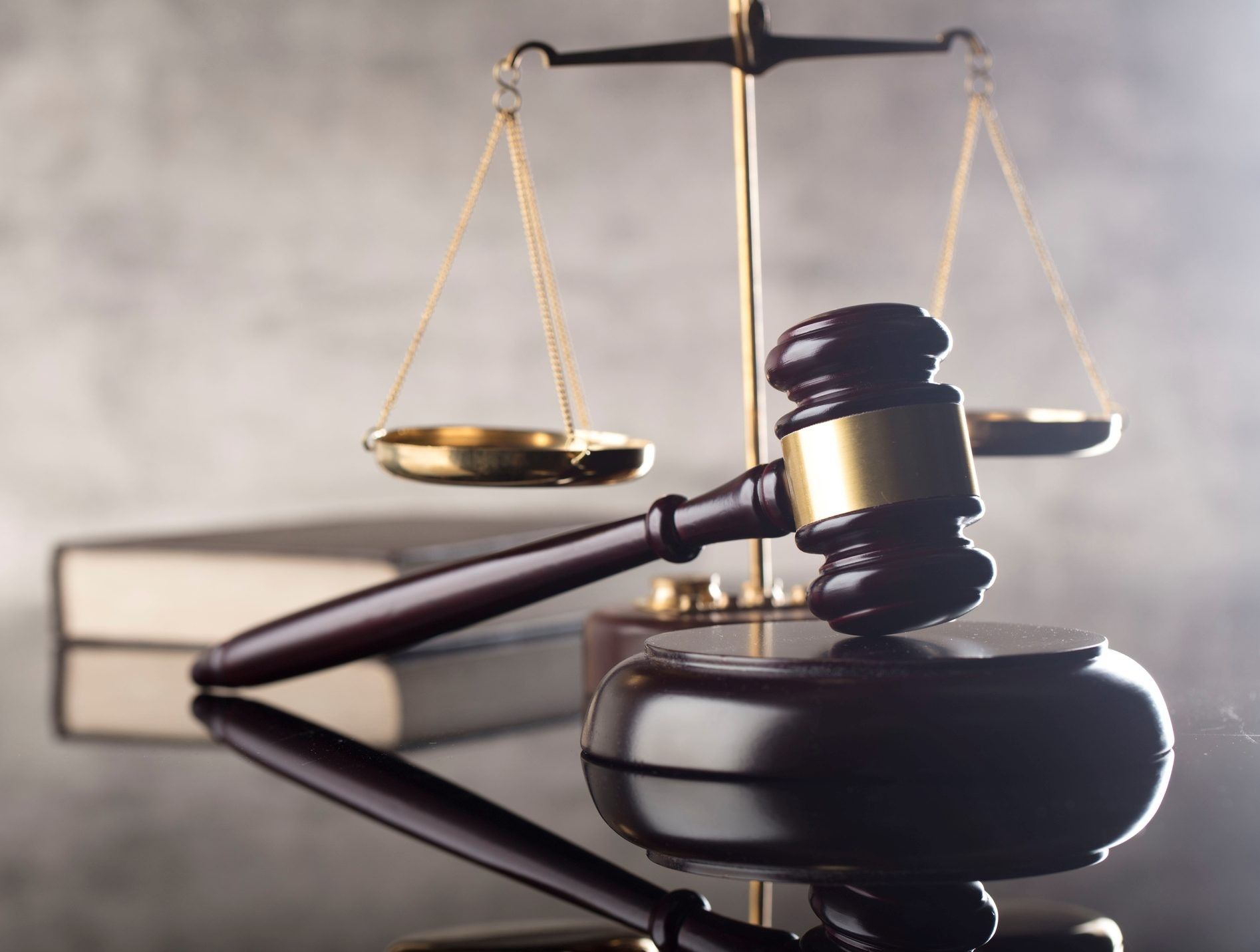This is a story the judiciary tried to dismiss.
It is one which those in power hoped they would pressure Eastern Eye into not publishing.
But after a four-month investigation we can reveal that South Asian and white judges have demanded a detailed investigation into one of their colleagues whom they believe “abused” their judicial powers and “bullied” a non-white court interpreter.
It goes to the heart of what this paper has been reporting for more than 20-months – to shine a light on the culture of bullying, racism and sexism in the judiciary.
Our story begins with an interpreter working with the courts in a hearing, and it ends with questions over the lack of transparency in the criminal justice system, the powers judges have, and how the Judicial Conduct Investigations Office [JCIO] investigates those on the bench.
Judges have told Eastern Eye they are sceptical of the way the JCIO examined what took place and have also questioned if race may have coloured their colleague’s judgement.
Investigators cleared the judge of any wrongdoing in a relatively short time, and without anyone complaining about them.
“It’s simply not possible in the time and would be beyond the JCIO’s remit to have considered the matter pre-emptively,” explained one white judge.
“To do so on the Judicial Office’s request, to forestall a public complaint, would surely be open to judicial review.
“It would go against the independent role.”

This case centred on why the interpreter had failed to turn up to work, for which they had a legitimate reason, and which is not a criminal offence, said judges.
The interpreter, whom we are calling A, was sworn in, and questioned.
Interpreter’s rights
The judges Eastern Eye spoke to are concerned their colleague did not inform the interpreter of their right to legal counsel, even though they could have held the accused person in contempt of court.
Although the judge requested the interpreter to handover their phone to a police officer to verify the interpreter’s account of why they were not in court, judges this newspaper spoke to said they believe the official felt “pressured” to do so.
A legal expert said the police need a search warrant to seize our phones, and even then, this measure is usually used only if they suspect a person of a criminal offence.
To be clear, this newspaper is not accusing the judge of anything.
It is their colleagues who are concerned by an investigation which has cleared the judge, whom we are not naming, of any wrongdoing so quickly.
A white judge tipped off this newspaper, and we paid for a transcript of the exchange to investigate the story.
The record showed the interpreter received an email from their agency stating they need not show up the next day.
Witness-judge exchange
This is just one small part of the exchange.
JUDGE: A, when I released you yesterday, I told you that you were under a duty to be back here by ten o’clock this morning, and you have walked in at twenty past two, so we have wasted a whole half a day. What is your explanation, please?
A: Your Honour, I received two emails yesterday –
JUDGE: Could you take your mask off so that I can hear you?
A: Just to mention before I start your honour, that I suffer panic attacks –
JUDGE: Yes.
A: – and currently under treatment so if I can be taken –
JUDGE: Yes, you may take a seat if you wish.
A: I received two emails.
JUDGE: Yes.
A: One at 17.06 –
JUDGE: You received two emails, one at 17.06…
A: Second email 17.09.
JUDGE: Yeah.
A: I managed to only look at them probably about an hour later.
JUDGE: So, you looked at them just after six o’clock?
A: Yes, your honour, at some point in the evening.
JUDGE: Yeah.
A: And these the two emails was [sic] saying that the job that I had booked here, was I was assigned to, has been cancelled and this is the reason I did not come in.
Other transcripts provided by the Justice Office suggest the interpreter had been late once before.

On this particular day, the transcript shows quite clearly that when the judge ordered the interpreter to their court, their agency phoned them to ask why they had not turned up for the hearing.
They explained their agency had sent two emails saying they were not needed.
Even so, the judge questioned them about where they had stayed and whether they had booked a hotel.
The interpreter responded that they went to visit a cousin whose son had been knifed to death to offer their condolences.
The judge asked the interpreter for the name of their cousin, their address and the name and age of the murdered boy.
This line of questioning, said other judges, was not needed, especially since the interpreter had proof on their phone which explained their absence.
“We have training which tells us that Asians use uncle, aunt, brother and sister as terms of respect,” another white judge told Eastern Eye.
“Their line of questioning was unnecessary, and they treated the interpreter as a liar and a criminal suspect.”
Credibility
The transcript makes clear the interpreter’s concern because they questioned the judge about the relevance of their line of interrogation.
“I am just getting your account as it is relevant to your credibility, all right?” replied the judge.
Judges have rules on how they should conduct themselves in public office.
They state: “Members of the judiciary should seek to be courteous, patient, tolerant and punctual and should respect the dignity of all.

“They should ensure that no one in court is exposed to any display of bias or prejudice on grounds which include but are not to be limited to ‘race, colour, sex, religion, national origin, caste, disability, age, marital status, sexual orientation, social and economic status and other like causes’.
“In the case of those with a disability, care should be taken that arrangements made for and during a court hearing do not put them at a disadvantage.”
Later in the hearing, the judge asked the interpreter whether they minded handing over their phone to the police officer in the court so they could look at the evidence.
“God-like complex”
An experienced south Asian judge told this newspaper that they would never have asked someone, whose job it was to help the court, to hand over their phone to the police.
Further, they felt the judge left the interpreter no choice but to give a police officer their private phone, without a search warrant.
“We are presented with a litany of bullying and narcissistic behaviour by a judge with a ‘God-like’ complex,” they said.
“How dare they throw out all courtesy, training and the concept of the Equal Treatment Bench Book by intimidating a person who actually has the courage to say they suffer from panic attacks.
“They then go on to distress them with a humiliating line of questioning in such awful circumstances regarding the death of a young man.
“Finally, asking a police officer to look at the phone – suggesting the issue ‘goes towards credibility’ demonstrates racism at its highest.
“I am apoplectic.”
“Aggressive racist undertones”
The police officer confirmed the interpreter had done nothing wrong.

Judges, who read the transcript of the short hearing, said they were “disgusted” by their colleague’s “aggressive and racist undertones”, despite the interpreter letting the justice know that they suffered from panic attacks and was on medication.
“Reading this transcript made me immensely upset for the interpreter and incandescent with rage about how this judge, who shares my title, had behaved,” said one south Asian judge.
“Their arrogant attitude, their choice of language and the behaviour they exhibited towards the interpreter in open court is an abuse of power for which they should be heavily sanctioned.”
White colleagues were also angry.
“This wouldn’t have happened to a white volunteer or official of the court,” said one.
“I’ve read the transcript, and the judge’s tone is completely wrong.
“They are bullying a person who had a legitimate reason to have been absent, and they showed an absolute disregard for cultural sensitives.
“For this judge to question the interpreter in the way they did was outrageous and puts the entire judiciary to shame.”
A senior peer, who is an expert on how non-white people are treated in courts, said they were “concerned” by the judge’s actions.

“I would formally ask somebody to look into the whole process and say, why was it necessary to take an individual in this particular manner?” said the peer.
“Were they treated differently than any other person?
“I was very concerned when I first read about the way the interpreter was being questioned about their non-attendance.
“The interpreter had the proof in front of them, the email messages, and they were pleading for people to look at them.
“Nobody seemed to have seen that in the first stages and took the interpreter through all the paraphernalia.
“It caused me pain because it took an individual through all this process, on the belief that they weren’t speaking the truth, when they were speaking the truth.”
“White supremacy”
The judge ordered the south Asian interpreter to appear before them at a moment’s notice after an administrative mistake led to the cancellation of their services.
They had been late to court on another occasion, but judges have told Eastern Eye this was not any reason to treat the interpreter in the way their colleague did.
Eastern Eye tried several times to contact the interpreter but failed to speak to them.
But a friend said, “A told me the police officer was embarrassed they had to check the phone.
“They kept on apologising, as if they knew they shouldn’t be doing this.”
In the end, the judge let the interpreter leave with “the court’s apology”.
“Thank you very much, you are free to go, and I am grateful that you jumped when we asked you too,” the judge concluded.
One south Asian judge criticised their colleague’s use of words.
“Their white supremacy is demonstrated with their concluding remarks of ‘jumping when asked’, which added to their patronising remark of suggesting they should be ‘paid for the day’.
“As if that makes it acceptable to have behaved in this manner.”
Another white judge suggested their colleague’s use of words harked back to the days of slavery “when owners expected their slaves to jump”.
Another source close to the interpreter described how the judge’s actions had affected their friend.
“A’s been diagnosed with PTSD [post-traumatic stress disorder], and the doctor’s given A anti-depressants,” they told Eastern Eye.
“Since that day A’s been unable to set foot inside a court building.
“They already suffered from panic attacks, and anytime they go near the court or see a police officer they think they’re going to be arrested.
“A’s told me that they came to the court to help the judge. A can’t understand why they were humiliated and treated like a criminal.
“Every time I see A, they cry, because A honestly thought the police were there to arrest them for something which wasn’t their fault.
“No amount of money will persuade A to come back. They want the judge to make a public apology.”

Eastern Eye campaign
One senior south Asian judge told Eastern Eye it backs up this paper’s campaign to expose the toxic culture in the judiciary.
“To many judges, such behaviour is seen as a ‘badge of honour’ and an attribute that will guarantee respect and promotion,” they said.
“It is not unlike the culture in the City.
“Sadly, as long as these attitudes and conduct are respected, it won’t change.
“It is very easy to change the culture, don’t reward bullies, don’t promote bullies, don’t encourage subjugation as a policy.
“Reward dignity and empathy. Reward those who behave in a patient and respectful fashion to everyone, and are strong but fair in their dealings, not complicit or supine, fair.
“The ethos will then change for good.”
A ‘whitewash’ investigation?
A concerned white judge contacted Eastern Eye in December 2021, and we ordered a transcript of the hearing.
On 30 March 2022, this paper approached the Judicial Office (JO) for comment.
We gave details of the hearing, we explained what we were going to write, and we urged the JO to obtain its own transcript.
In response, a spokesperson said on 4 April, “The judiciary cannot respond to anonymous and unsubstantiated allegations.
“Complaints can be made and are then investigated and dealt with appropriately by the JCIO.
“It is fundamental to the ethos of all judges to treat everyone equally and with respect.
“This is reinforced in the Guide to Judicial Conduct, in the training judges receive, the Diversity and Inclusion Strategy, and in the support that is available to them.”
Clarification
We asked for further clarification and whether the JO had read the transcript.
Eastern Eye has email proof that as of 4 April the JO had not received a transcript of the hearing.
It was not until 21 April, after several email exchanges, we received another statement.

“You have made an explicit and very seriously damaging allegation against a judge, that [they] discriminated against a court interpreter on grounds of race, because [they] had a personal bias against non-white people.
“You base your conclusions on one passage of dialogue in court which you have selected from four days without context, a passage which you have shown to others and asked them for a view which you say you intend to use to support your allegations.
“We urge you to read the entire court transcript before forming your conclusions and before publishing your defamatory allegations more widely.”
Unanswered questions
Even if the JO received a transcript and shared it with the JCIO on 4 April, the “investigation” lasted just 12 working days at most.
This raises several questions of the JCIO.
- Who complained?
- Who carried out the investigation – was it an individual or a panel?
- What type of investigation took place?
- Who did the JCIO interview?
- Did the JCIO interview the interpreter?
- What was the scope of the investigation?
- Who signed off on clearing the judge?
We did read the transcripts provided by the JO.
The JO also asked us to publish them in full, something we suggest it does because the hearing remains a matter of sub judice.
The questions which the JO has failed to answer are:
- when did the complaint against the judge go in?
- who put in the complaint?
- what were the parameters for investigating the complaint?
- when did the investigation begin?
JCIO statement
The JCIO issued a statement via the JO.
“The independent Judicial Conduct Investigations Office (JCIO) considers complaints in accordance with statutory rules, which are available on the JCIO website: www.complaints.judicialconduct.gov.uk.
“The rules relevant to this matter are the Judicial Conduct (Judicial and other office-holders) Rules 2014.
“The rules contain a mechanism which enables the JCIO, with the agreement of a nominated judge, to consider information received in the absence of a complaint as though it were a complaint.
“After careful consideration, the JCIO determined that it was obliged to dismiss the complaint.
“As disciplinary cases are confidential, we cannot provide any further details.”
Judges Eastern Eye has spoken to remain perplexed.
“So, a judge demands to see the interpreter, suggests they might be lying, interrogates their telephone, asks them personal questions, appears not to believe what they are saying, all the while when the interpreter has not been able to take legal advice,” said one.
“Nor have they been advised about their privilege against self-incrimination.
“I know of one judge who had one complaint about one comment about the law they made in a public meeting.
“I am told the JCIO centred on one word, and they refused to look at the context or the recording, despite repeated appeals, and it took them nine months to investigate.
“It’s a whitewash. If it’d been me, I’d have been absolutely blown to smithereens.
“When it comes to the judiciary, it’s one rule for them and another rule for us.”
The law on handing over phone to police
The law in England and Wales is quite clear about handing over your phone to a police officer.
The police can use section 49 of the Regulation of Investigatory Powers Act 2000 (RIPA), a law brought in to deal with terrorism.
This forces us to hand over the passwords and keys to encrypted content to electronic devices and social media.

The police can also apply to a court for a search warrant.
They can also seek a “production order” compelling us to provide documents and texts etc. under the Police and Criminal Evidence Act 1984.
But it is highly unusual for a judge “to ask” a court interpreter to hand over their phone to a police officer to check the veracity of their story, especially when there is no suspicion of a criminal offence, according to a legal expert Eastern Eye consulted.
“I cannot conceive what power of seizure there can be in the circumstances,” they said.
“Reasonable cause to believe/suspect, what exactly if we look at an analogous police powers situation?
“But this is not a crime so what possible justification is there?”
Even the College of Policing warns:
“The use of search powers are [sic] intrusive.
“Particular care should be taken if the owner or occupier of premises may be vulnerable.
“If a search intrudes into an individual’s personal or work life this may amount to a breach of Article 8 of the European convention on Human Rights.”
What do judges say?
Ø A white judge of considerable standing said, “It is simply not acceptable for conscientious professionals to be treated with the evidently baseless suspicion and lack of respect apparently shown here.
“Questions have to be asked as to whether the ethnic background of this person contributed to their being treated in such an inappropriate fashion.
“Such behaviour mars the reputation of the judiciary and damages public confidence.”
Ø “As long as the judiciary appoint from their own club and in their own image this bullying conduct is being repeated throughout courts in the England and Wales,” said one Asian judge.
“Remember the public taxpayers fund the court system. They are entitled to racist free treatment.
“Whilst the secret soundings that Eastern Eye has uncovered are allowed to continue nothing will change.
“The public should demand court free from institutional racism.
“I feel so ashamed a judge can behave like this and no one else had the courage to intervene.
“Fear makes good people incapable of acting humanely.”
Ø A senior white judge, shown the transcript observed, “I am lost for words.
“We rely on the good will of voluntary interpreters from our diverse society and to see this is profoundly upsetting.”
Ø Another white judge said, “Given that public money pays for almost all aspects of the courts it is reasonable to enquire why an interpreter has apparently failed to turn up.
“However, in the first instance would it not have been more sensible to ask the translation agency where their interpreter was?
“The court must know they arrange for their attendance.
“Second, once the interpreter was there was it really necessary to cross examine the interpreter in public, and in such an accusatory manner.
“At the very least could this not have been done in chambers to avoid this humiliating spectacle?
“It seems gratuitous humiliation and although the judge gave a public apology, some thought by them could have avoided the entire episode.”
